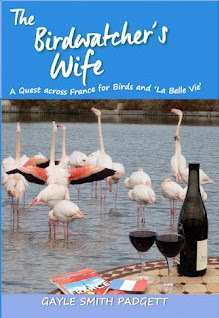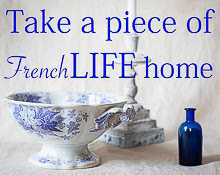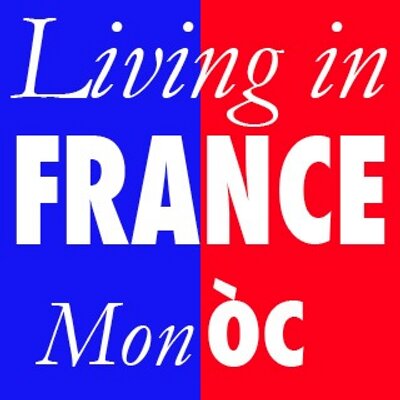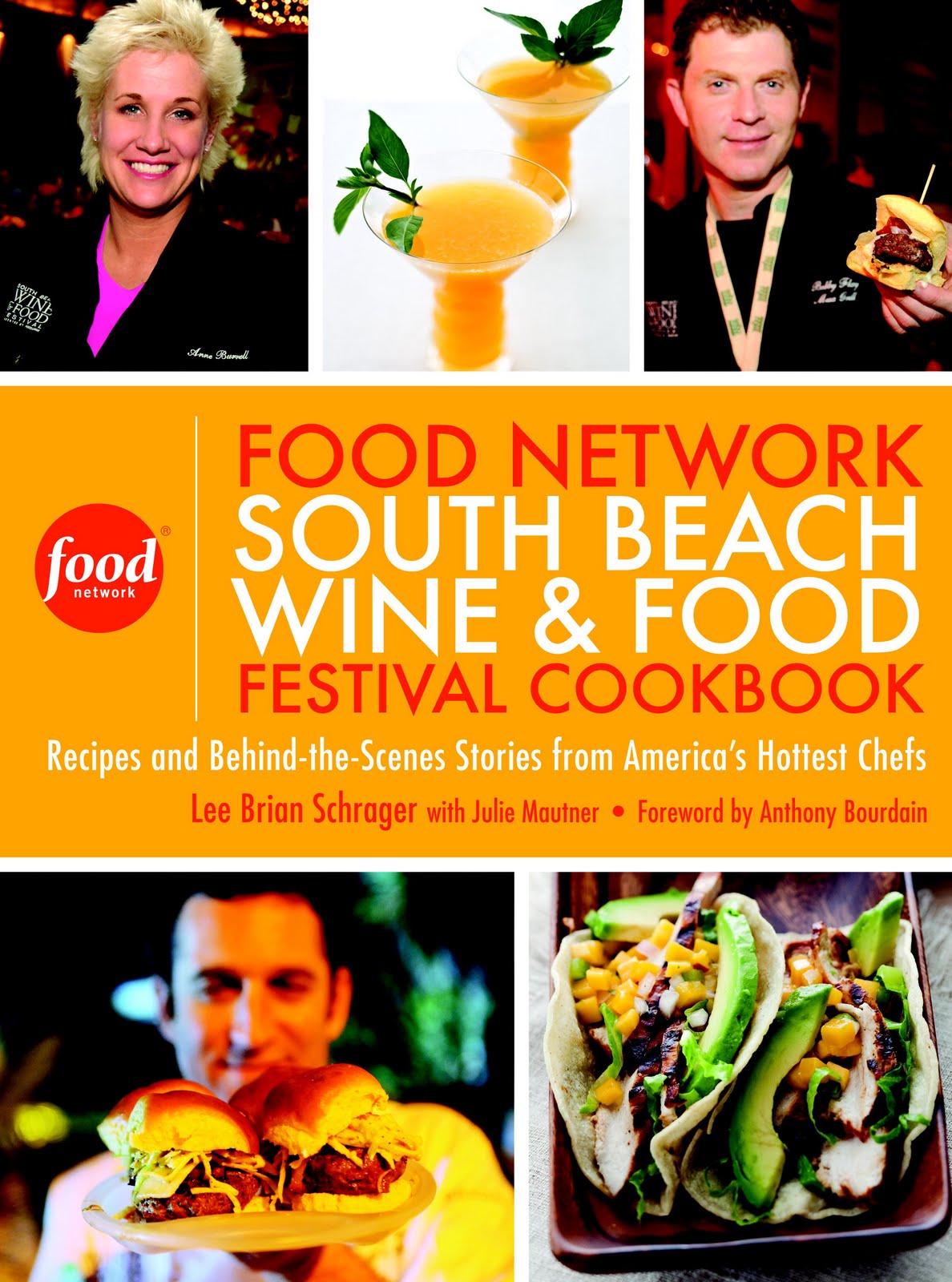Friday, January 14, 2011
Jewish Food in France
A couple years ago, my friend Joan Nathan, a Washington, D.C.-based food writer and author, called and said she was coming to France, doing research for a new book. I snapped to attention, not just because I love Joan but also because I loved the topic: Jewish food in France. Joan was looking for cooks, stories, recipes, family lore, historical documents--anything that would help her piece together a rich and compelling narrative.
"Who can you introduce me to?" she asked. "Where should we go and what should we eat?"
France has the third largest Jewish community in the world (about 600,000) and luckily I know quite a few wonderful Jewish cooks in Provence, thanks partly to the Association Culturelle Juive des Alpilles, a group I belong to in St. Remy. (From Joan’s book I learned that St. Remy had a flourishing Jewish community until the 14th century.) With about 50 families as members, the ACJA hosts educational, social and religious events throughout the year, drawing both Jews and non-Jews from throughout the region.
My first call was to my sweet friend Michelle Victor, an elegant Parisian attorney now living and working in Provence, and next thing I knew, she and Jocelyne Akoun (another ACJA member) were planning a traditional Algerian-Jewish feast for Joan and me and a few other very lucky guests. It was an astoundingly good meal, which we devoured course by spicy, savory, sweet course, all spread out around the large coffee table in the Akoun's beautiful home, which they run as a B&B, called La Cigale et La Fourmi.
As we ate, Jocelyne and her husband Hubert provided a crash course in the Sephardic Jewish culinary traditions of Algeria, Tunisia and Morocco. "Jews were in North Africa before the Arabs," Hubert told us. "Some Jews arrived when the first temple in Jerusalem was destroyed and have lived there ever since." Others, Joan adds, were converted Berbers or came from Spain during the inquisition.
(Jocelyne, as it turns out, grew up in a Turkish-Spanish family that lived in Algeria for many years before immigrating to Marseille. In her dishes we tasted the influences of each culture and were lucky enough to have the Akouns as expert guides. Joan was as impressed as I was and she used three of Jocelyne’s recipes in the book.)
Thanks to the Akouns and all the other good people who opened their homes, hearts and recipe files, Joan has produced a wonderful book encapsulating 2,000 years of Jewish cooking in France. I am so impressed by her work and I’m clearly not alone; the book was released in late November and immediately found its way onto all the “Best Cookbooks of the Year" lists. This is Joan's 10th book and if I could find the right Yiddish word for “something to be extremely proud of,” I would use it here.
Whether your interest is Jewish culture, French history, culinary traditions or just good food, this is one book you’ll want to own. Joan takes us into kitchens in Paris, Alsace and the Loire Valley; she visits the bustling Belleville market in Little Tunis in Paris; she celebrates Sabbath and other special holidays. And all across France, she finds that Jewish cooking is more alive than ever.
So what exactly is Jewish French food?
“It’s everything you don’t think it is,” Joan says. For example?
“The French are known for sauces but Kosher law forbids cream with meat,” she writes. “Jews who observe the dietary laws can’t have oysters or escargot. But they took regional specialties like quiche lorraine, made with ham or lardons mixed with cream, and instead created onion quiche, vegetable quiche and even tarte flambé--all without the ham.
“In France there are many distinctly Jewish dishes such as a roast shoulder of lamb or eggplant dishes like shakshuka or papeton d’aubergines, an eggplant gratin,” she continues. “And it varies widely depending on the region from which the Jews came: Provence, Alsace, the Southwest, Eastern Europe, Spain and North Africa. In many cases they brought distinctly Jewish dishes and integrated them with the ingredients they found in their new homes.”
In the south, for example fougasse is an old Jewish Sabbath bread as well as a distinctly Provencal bread. Pot au feu in Alsace is used by Jews for Shabbat and the holidays. And then there’s foie gras; Jews adapted it to make chopped liver, using the goose fat in their dishes and selling the quills and feathers for a living.
“They needed that fat in their dishes because they didn’t use lard,” Joan explains.
About a quarter of the 300,000 Jews in France before World War II died in the Holocaust and others later left for Israel or the U.S. But as independence came to the former French colonies of Morocco, Tunisia and Algeria in the late 1950s and early 1960s, many more Jews emigrated to France. And the customs they brought came to define French Jewish food as well. Many Sephardic dishes, in fact, actually have centuries-old roots here in southwestern France and Catalonia, from before the time that Jews were expelled and settled in North Africa.
“Jewish cooks in France still use the ingredients of those ancestors — anise, olive oil, rosewater, and pine nuts — reimagined on stovetops in Marrakesh, Oran and Tunis,” Joan writes.
It’s all the personal stories in the book, however, that bring the food to life. One elderly man Joan interviewed was busy at work on his own book, about his relatives who descended from the Juifs du Pape. Those were the Jews in the Comtat Venaissin--the present day Vaucluse region which includes Avignon, Carpentras, Cavaillon and L’Isle sur le Sorgue--who were protected in the Middle Ages by the Pope. He regaled Joan with stories about his ancestors, such as the 13th-century yeshiva (religious school) teacher who was also a truffle hunter selling his precious finds at the Carpentras fair.
Later, Joan visited the four protected towns and les carrières, the cobblestoned quarters or ghettoes where Jews were forced to live for centuries. Of course she found that much more moving, having met people with very personal ties to this chapter in French history.
Despite her straightforward take on the bleakest chapters of the Jewish experience in Europe, Joan’s book is a joyful celebration of a vibrant and complex cuisine, told through the stories and recipes of those who’ve shaped it, preserved it and who will (one hopes) carry it forward. It’s a wonderful read whether you cook from it or not. And the Jewish sense of humor definitely comes through. In fact, Quiches, Kugels, and Couscous reminded me of that great one-liner about the history of the Jewish people:
The history of the Jews? That’s easy: They tried to kill us. We survived. Let’s eat!
Quiches, Kugels, and Couscous: My Search for Jewish Cooking in France (Knopf) is available in bookstores and from Amazon here. Joan’s website is here. Her email is: nathan4221@aol.com. She’s also on Twitter and on Facebook. Hubert and Jocelyne Akoun run their very-special St. Remy home as a B&B called La Cigale et La Fourmi. For more info on the Association Culturelle Juive des Alpilles contact Elio Lussato (artist.elio@orange.fr or lussato.acti@wanadoo.fr ) or Hubert Akoun (hubertakoun@free.fr). Elio speaks French only; Hubert speaks English.
Labels:
AVIGNON,
BAKERY,
BOOKS,
CHEFS,
EUROPE,
FOOD AND COOKING,
FOOD AND RESTAURANTS,
FRANCE,
FRENCH LANGUAGE,
HISTORY,
LIFE IN PROVENCE,
MARSEILLE,
MOROCCO,
PARIS,
PROVENCE,
ST. REMY,
TRAVEL
Subscribe to:
Post Comments (Atom)




























































.jpg)










This sounds like a very interesting book, history combined with cooking, I love it!
ReplyDeleteJulie, Have you ever visited the Musée Nissim de Camondo in Paris? Dominique and I were in Paris last weekend and toured the home. The kitchen was amazing and I recommend it to anyone who loves food. After reading your article, I can only imagine the wonderful aromas that were in that kitchen, and the beautiful meals that were served. I'll be in Florida in March and will look for your book, as well as this one! Thanks for all of your interesting posts! Rainey
ReplyDeleteAnd a much delayed thank you to you, Rainey, for this nice message!
DeleteI can't wait to buy this book. I have loved all of Joan Nathan's other books - the cultural history mixed with the food is a magical combination. Wonderful review!
ReplyDeleteThanks, Erika! Writing this review was lots of work but very interesting...and I'm really glad you enjoyed it. :)
DeleteGreat post Julie, I wish I had been present at the Jewish-Algerian feast, my mouth was watering just reading about it. Joans book has gone onto my wish list. Although I am based in the Pyrenees, my Mother in law lives in Sanary-Sur-Mer,I am planning to spend some time over there his year, I will definitely be getting in touch with one of the contacts you have listed for the ACJA.
ReplyDeleteWishing you a fabulous weekend.
XXX
Dear Dash, I'm sorry I didn't thank you for this nice comment when you first left it. So this is a late but heartfelt...thanks!
DeleteA very nice review; the book will go on my wish list for addition to my cookbook library. When I do buy it, I will do so through your site. I like the combination of history and food.
ReplyDeleteGreat post. I'll spare you the story of the surprise I prepared for my Jewish former husband for our first seder...suffice it to say, I was a quick learner - and he was gracious. This book would have been handy back then!
ReplyDeleteCute! I can only imagine!! :)
DeleteJulie: I am going to purchase this fantastic cookbook and tell my friends about it. It will be very useful at holiday time and extremely interesting to read as well. Thank you for this interesting article.
ReplyDeleteLisa
NYC
dear julie,
ReplyDeletevery interesting post... and here is to wishing you a new year filled with peace and happiness... xx pam
Thank you...and to you as well...this year and in the future, of course! :)
DeleteHello Julie. I have just surfed into your fascinating looking blog via another of your followers blog lists. There is so much of interest to come back for here. I'll have 'numb bum' for months. I too share an interest in all food cultures and Joan's book looks like a 'must have' for me. A couple of years back, I grabbed a copy of 'Fast & Fresh' by Oded Schwartz & Maddalena Bonino. Their recipe for Shish Kebabs remains a firm BBQ favourite with my tribe. Excellent post. Have to fly...bacons burning on the grille. Back soon. Phil.
ReplyDeleteDear Phil, thanks for the nice comment and sorry for my delay! I'll check out the authors you mention...I'm not familiar with them. Hope the bacon didn't burn! :)
DeleteJulie, you are living a dream of mine. I plan to live abroad one day as well, a former French major who has only one child left to leave the nest and enter college! I just discovered your blog and I'll be following it now. Best of luck to you and your family!
ReplyDeleteThank you Kristen! I hope your dream of living abroad has come true! :)
DeleteNice article!
ReplyDeleteYou ask a language question: "This is Joan's 10th book and if I could find the right Yiddish word for 'something to be extremely proud of, I would use it here."
I think the word you are looking for is "kvell" which means to gush over or be delighted by, as in "the proud grandparents kvelled over everything their little darlings did." It might not be exactly right but it is hopefully close.
Hi Keith! I'm looking for the object of the kvelling...the thing being kvelled about. Let me know what you find! :)
Delete